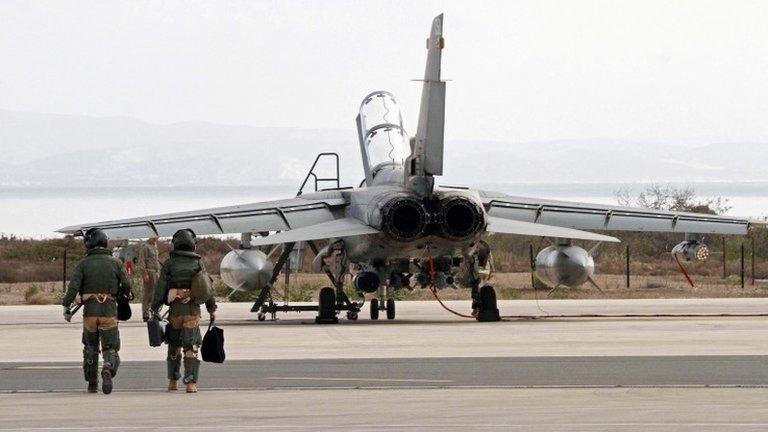PM urged to explain UK personnel involvement in Syria
- Published
Despite a vote in parliament two years against military action in Syria, British pilots have been involved in carrying out airstrikes against so-called Islamic State targets
David Cameron is coming under pressure to explain why UK personnel, including pilots, have taken part in bombing raids on Islamic State militants in Syria without approval from Parliament.
About 20 Britons took part while embedded with US and Canadian forces.
MPs only approved action against IS in Iraq and the SNP's Alex Salmond said the Commons may have been misled.
Number 10 played down the revelations but Labour and the Lib Dems are calling for an explanation in Parliament.
The new Liberal Democrat leader Tim Farron told Channel 4 News the involvement of UK personnel appears "at first sight to be a breach of democracy, of parliamentary procedure, and therefore a betrayal of the British people.
"For David Cameron to have sanctioned that, if it is as it appears, that is quite wrong and he will need to answer to the House and to the British people."
Defence Secretary Michael Fallon defended the exchange of troops, saying it was "standard operating practice" and had been "since the end of World War Two".
A Labour spokesperson said the programme to embed personnel with allies was "valuable" but the government "needs to be transparent" and the party would ask the Ministry of Defence to make a statement in the Commons on Monday.
'Standard practice'
Earlier, the Ministry of Defence confirmed the RAF personnel, including three pilots, flew intelligence, surveillance, reconnaissance and strike missions against IS.
UK pilots are not currently taking part in action in Syria, the MoD said, but personnel embedded with the US, French and Canadian armed forces had been authorised "to participate in coalition operations" and were under those forces' chain of command.
Only the US and Canada are operating in Syrian airspace, it added.
David Cameron's spokeswoman said the prime minister knew that a small number of aircrew had been embedded and "what they were doing".

Analysis
Ross Hawkins, political correspondent
Why weren't we told?
That's the question troubling many MPs, not all of them on opposition benches.
They voted against British action in Syria two years ago. They were told their approval would be sought before any future air strikes in the country.
And yet news of Britons bombing Syria emerged not in the Commons but via a freedom of information request.
Few pilots were involved. They were under foreign command. None are flying the missions now.
But for a prime minister showing every sign of making plans for another vote on Syrian strikes this will have built no trust.
Ministers are highly likely to end up explaining themselves to the Commons, whether they want to or not.

The information emerged following a Freedom of Information request submitted by the human rights group Reprieve.
Alex Salmond, the SNP's foreign affairs spokesperson, said the government was "engaged in, at best, concealment and, at worst, the act of misleading parliament and people".
Speaking to BBC Radio 4's PM programme, he said: "There is a world of difference between exchange schemes between armed forces and putting the lives... of UK armed forces personnel at risk by taking part in combat operation.
"What would happen if one of these pilots had been killed? Or captured."
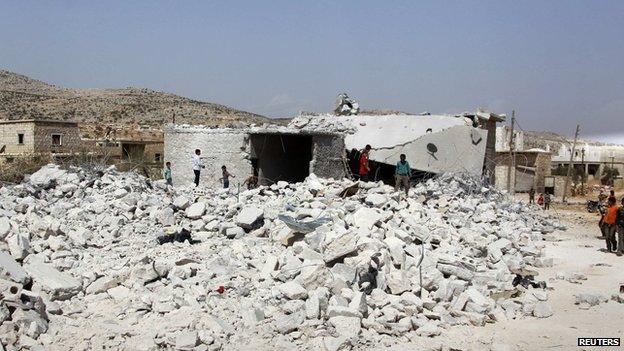
US air strikes in Syria have been taking place since September 2014
Tory MP John Baron, who opposed British action in Iraq, also called for ministers to come to the Commons to explain the situation.
He said: "We don't have at the moment parliamentary authority to carry out military airstrikes in Syria, but the Americans do and they've been doing that to keep all of us safe."
Mr Baron, who is a member of the Foreign Affairs Committee, added: "When we're going to run British military strikes in Syria, of course we've said we'll go to Parliament for approval, but this is different."
But Crispin Blunt, Conservative MP and Foreign Affairs Committee chairman, said the 2013 vote on action in Syria was a "totally different decision" to the question of strikes on IS - and that that decision had not been undermined.
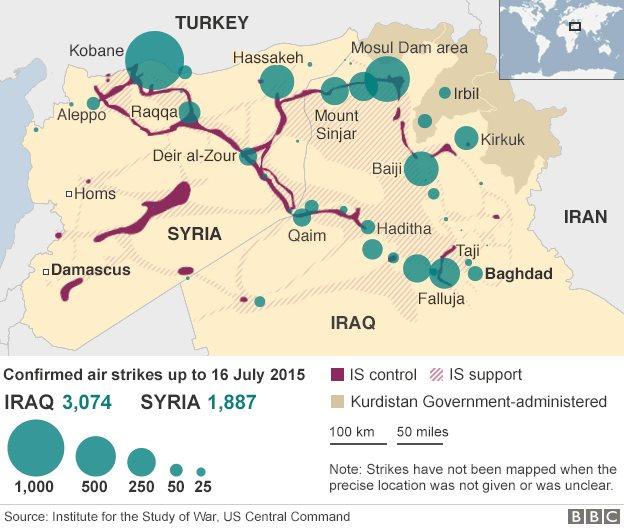
In 2013 MPs voted against military action to deter the use of chemical weapons by President Bashar al-Assad's regime in Syria.
At the time, Prime Minister David Cameron said he would respect the defeat of the government motion by 285-272, and ruled out joining US-led strikes.
Sir Michael Graydon, former chief of the air staff, said the exchange programme had been happening for "many decades", and the government was right "not to make a huge issue of it".

30 August 2013: The government is defeated as MPs say no to military action against Syrian President Bashar al-Assad's government by 285-272
23 September 2014: The first US-led air strikes on Islamic State targets in Syria take place
26 September 2014: MPs back British participation in air strikes against Islamic State militants in Iraq, by 524 to 43
30 September 2014: The RAF carries out its first air strikes of the Iraq mission

Britain has already been carrying out surveillance and air-to-air refuelling operations over Syria.
Last month, the defence secretary urged MPs to consider backing air strikes on IS in Syria and said the extremists needed to be targeted "at source".
Acting Labour leader Harriet Harman has indicated her party would not oppose military action in Syria. as the case was different to the situation in 2013 when Labour voted against intervention.
- Published17 July 2015
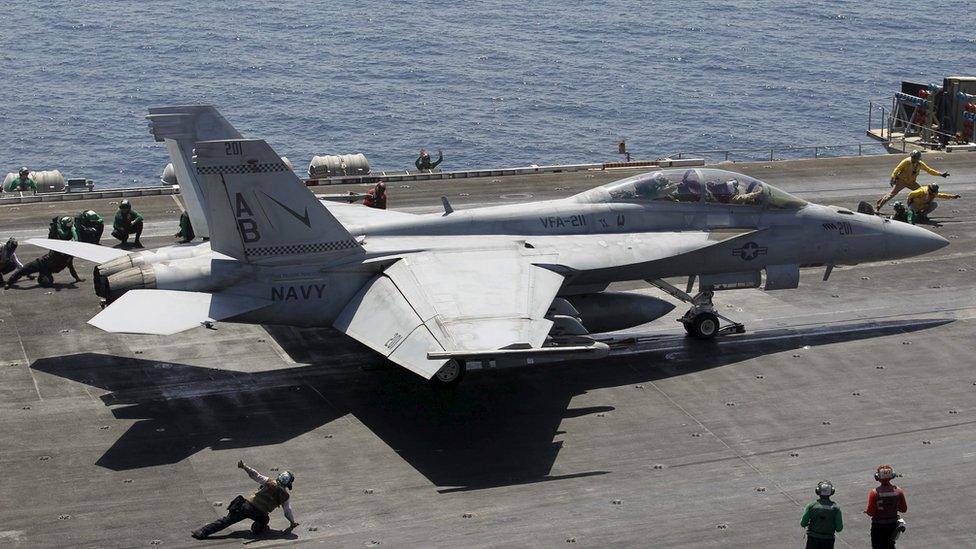
- Published17 July 2015
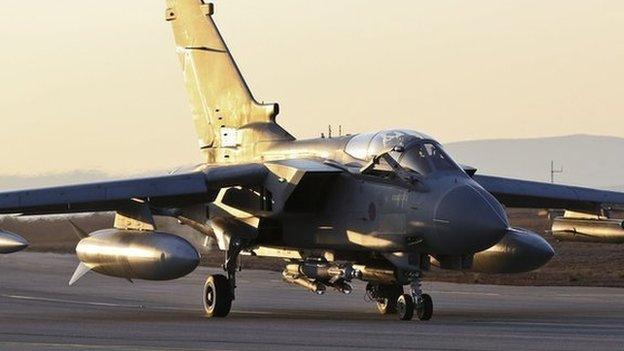
- Published12 July 2015
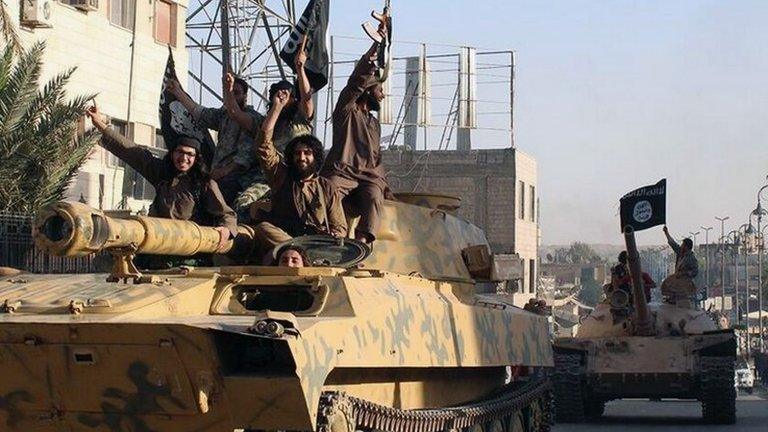
- Published3 July 2015
